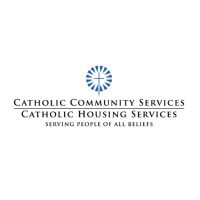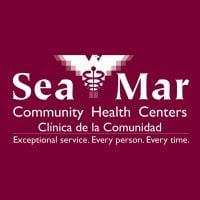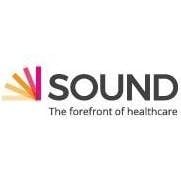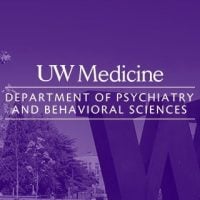
University of Washington Medical Center - Psychiatry and Behavioral
Drug Rehab Center in Seattle, Washington
- Mental Health
The University of Washington Medical Center - Psychiatry and Behavioral in Seattle, Washington offers evidence-based mental health treatments and addiction services, and is accredited by The Joint Commission and is a member of the American Academy of Addiction Psychiatry.
About This Washington Facility
The University of Washington Medical Center - Psychiatry and Behavioral in Seattle, Washington is dedicated to providing comprehensive mental health services to individuals, families, and communities. This world-class facility offers evidence-based treatments and programs to meet a wide range of mental and behavioral health needs. They provide an array of specialized services including cognitive-behavioral therapy, dialectical behavior therapy, and pharmacological treatment, as well as group and individual therapy.
University of Washington Medical Center - Psychiatry and Behavioral offers a wide range of treatment options for addiction and substance abuse. These services range from outpatient programs to inpatient services, as well as medication-assisted treatment and/or detoxification services. The team works closely with each individual to create a unique plan that addresses a person's specific needs, which typically includes an interdisciplinary approach involving both primary care and mental health professionals.
University of Washington Medical Center - Psychiatry and Behavioral is accredited by The Joint Commission and is a member of the American Academy of Addiction Psychiatry. They recently received the Joint Commission’s Gold Seal of Approval, as well as the National Commission on Correctional Health Care's Gold Seal of Approval, which recognizes their commitment to providing high-quality, safe and effective care. The facility also offers continuing education programs, research opportunities and specialized programs geared towards adolescents and parents.
Genders
Ages
Modality
Additional
Conditions and Issues Treated
Levels of Care Offered at University of Washington Medical Center - Psychiatry and Behavioral
This center offers a variety of custom treatment tailored to individual recovery. Currently available are Inpatient, with additional therapies available as listed below.
Inpatient treatment involves staying in the hospital or facility while treating all facets of addiction or co-occurring illness. This helps to minimize distractions and increase the emphasis on rehabilitation. Typical stays for inpatient rehabilitation in Seattle, WA are about a month long.
Therapies & Programs
Therapy plays a major role in addiction recovery. It encourages patients to get to the root of their addiction and learn how to better handle the issues that led to using. Therapy can be conducted in group and one on one settings. In University of Washington Medical Center - Psychiatry and Behavioral‘s individual therapy, the patient meets with the therapist in a one on one setting. This allows them to focus on the underlying issues of addiction and come up with solutions to prevent future abuse.
Addiction commonly results in malnutrition, vitamin and mineral deficiencies. This can be reflected in weight loss, hair loss or hair changes, skin irregularities. Eating correctly to replace lost vitamins and minerals while balancing your diet can build confidence. University of Washington Medical Center - Psychiatry and Behavioral will help you get back on track.
Nicotine Replacement Therapy (NRT) uses low-dose nicotine drugs to eliminate tobacco addiction from smokers. Without smoking, the treatment at University of Washington Medical Center - Psychiatry and Behavioral in Seattle, WA brings nicotine into the bloodstream to minimize dependence on the physical habit, while detoxing the body from the attachment. To alleviate withdrawal symptoms, it also helps abusers to adapt to lower doses over time.
Patient Experience
Experiential Therapy at University of Washington Medical Center - Psychiatry and Behavioral
This is a type of therapy that involves activity to recreate situations that may have caused trauma or negative emotions. Experiential therapy at University of Washington Medical Center - Psychiatry and Behavioral in Seattle, WA can involve acting, props, arts and crafts, animal care or other tools that may be effective.
This therapy is done on an individual basis and can help revisit and heal from past traumas. Trust between the therapist and individual is important for success. Experiential therapy can help you more closely become you and move through life in a positive and authentic manner.
Payment Options Accepted
For specific insurance or payment methods please contact us.
Is your insurance accepted?
Ask an expert, call (888) 674-0062
Additional Details
Specifics, location, and helpful extra information.
Seattle, Washington 98195 Phone Number(206) 543-3750 Meta DetailsUpdated November 25, 2023
Staff Verified
Patient Reviews
There are no reviews yet. Be the first one to write one.
Seattle, Washington Addiction Information
Washington's substance use, abuse, and addiction rates have followed the trends of the rest of the over the past years. Methamphetamine abuse is the biggest threat to Washington. Heroin-related overdoses increased by almost 450% from 2006 to 2016. 20% of all annual deaths in Washington are somehow drug and/or alcohol-related. Drugs are widely abused in Washington because they are easily trafficked in and out of the state.
In Seattle, Washington, drug addiction is a big problem. In 2016, there were nearly 500 drug overdose deaths in Seattle, with opioids responsible for most of those deaths. 4.5% of people aged 12 or older reported using psychotherapeutic drugs for nonmedical purposes. Some of the most common treatments include inpatient rehab, outpatient rehab, and detox centers.
Treatment in Nearby Cities
- Pullman, WA (249.2 mi.)
- Centralia, WA (71.4 mi.)
- Mead, WA (230.6 mi.)
- Richland, WA (171.7 mi.)
- Colville, WA (212.8 mi.)
Centers near University of Washington Medical Center - Psychiatry and Behavioral

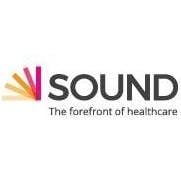

The facility name, logo and brand are the property and registered trademarks of University of Washington Medical Center - Psychiatry and Behavioral, and are being used for identification and informational purposes only. Use of these names, logos and brands shall not imply endorsement. RehabNow.org is not affiliated with or sponsored by University of Washington Medical Center - Psychiatry and Behavioral.

